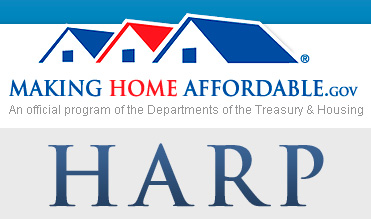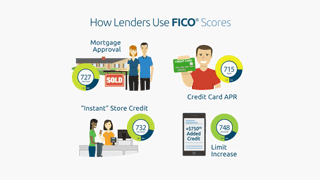Possibilities are, you've seen commercials boasting the advantages of a reverse home mortgage: "Let your house pay you a month-to-month dream retirement income!" Sounds great, best? These claims make a reverse home mortgage sound practically too great to be real for senior house owners. But are they? Let's take a closer look. A reverse mortgage is a type of loan that uses your home equity to offer the funds for the loan itself.
It's basically a chance for retired people to tap into the equity they have actually developed over numerous years of paying their home mortgage and turn it into a loan for themselves. A reverse home mortgage works like a regular home mortgage because you need to use and get authorized for it by a lender.
However with a reverse home mortgage, you do not make payments on your home's principal like you would with a routine mortgageyou take payments from the equity you have actually built. You see, the bank is lending you back the cash you've currently paid on your home but charging you interest at the very same time.
Seems easy enough, right? However here comes the cringeworthy truth: If you die prior to you've offered your house, those you leave behind are stuck with two alternatives. They can either settle the full reverse home loan and all the interest that's piled up throughout the years, or surrender your home to the bank.
Like other types of home mortgages, there are different types of reverse home mortgages. While they all basically work the exact same way, there are three main ones to learn about: The most common reverse home mortgage is the Home Equity Conversion Home Loan (HECM). HECMs were developed in 1988 to help older Americans make ends meet by allowing them to use the equity of their homes without needing to vacate.
Excitement About What Is The Debt To Income Ratio For Conventional Mortgages
Some folks will use it to spend for bills, vacations, house renovations and even to settle the remaining quantity on their regular mortgagewhich is nuts! And the effects can be huge. HECM loans are kept on a tight leash by the Federal Real Estate Administration (FHA.) They don't desire you to default on your home loan, so because of that, you will not certify for a reverse home mortgage if your home is worth more than a specific amount.1 And if you do receive an HECM, you'll pay a substantial mortgage insurance premium that protects the loan provider (not you) versus any losses - how do reverse mortgages work?.
They're used up from independently owned or operated business. And since they're not regulated or insured by the government, they can draw house owners in with pledges of higher loan amountsbut with the catch of much greater rate of interest than those federally guaranteed reverse home mortgages. They'll even offer reverse home mortgages that enable house owners to obtain more of their equity or consist of homes that surpass the federal optimum quantity.
A single-purpose reverse home mortgage is provided by federal government agencies at the state and regional level, and by not-for-profit groups too. It's a type of reverse home mortgage that puts rules and constraints on how you can utilize the cash from the loan. (So you can't spend it on a fancy holiday!) Usually, single-purpose reverse mortgages can only be utilized to make real estate tax payments or pay for home repair work.
The thing to remember is that the lender has to authorize how the money will be utilized prior to the loan is provided the OKAY. These loans aren't federally insured either, so lenders don't have to charge mortgage insurance premiums. However given that the money from a single-purpose reverse home mortgage has actually to be used in a specific way, they're generally much smaller sized icanceltimeshare in their amount than HECM loans or proprietary reverse mortgages.

Own a paid-off (or at least substantially paid-down) home. Have this home as your main residence. Owe absolutely no federal financial obligations. Have the capital to continue paying home taxes, HOA fees, insurance, upkeep and other house expenditures. And it's not simply you that has to qualifyyour home likewise has to meet specific requirements.
What Are Reverse Mortgages And How Do They Work Fundamentals Explained
The HECM program also permits reverse home mortgages on condominiums authorized by the Department of Real Estate and Urban Development. Before you go and sign the papers on a reverse mortgage, inspect out these 4 significant downsides: You might be considering taking out a reverse mortgage because you feel positive loaning versus your house.
Let's simplify like this: Picture having $100 in the bank, but when you go to withdraw that $100 in cash, the bank only gives you $60and they charge you interest on follow this link that $60 from the $40 they keep. If you wouldn't take that "deal" from the bank, why in the world would you wish to do it with your house you've spent years paying a mortgage on? But that's precisely what a reverse home mortgage does.
Why? Due to the fact that there are costs to pay, which leads us to our next point. Reverse home loans are packed with additional costs. And many customers choose to pay these charges with the loan they're about to getinstead of paying them expense. The important things is, this costs you more in the long run! Lenders can charge up to 2% of a home's worth in an paid up front.
So on a $200,000 home, that's a $1,000 yearly cost after you have actually paid $4,000 upfront of course!$14 on a reverse home mortgage are like those for a routine home mortgage and consist of things like house appraisals, credit checks and processing fees. So before you know it, you have actually drawn out thousands from your reverse mortgage prior to you even see the first dime! And because a reverse home mortgage is only letting you use a portion the worth of your house anyway, what occurs when you reach that limit? The cash stops.
So the amount of money you owe goes up every year, monthly and every day till the loan is paid off. The advertisers promoting reverse mortgages like to spin the old line: "You will never ever owe more than your house deserves!" But that's not exactly real because of those high rates of interest.

The 30-Second Click to find out more Trick For What Are Current Interest Rates On Mortgages
Let's say you live up until you're 87. When you pass away, your estate owes $338,635 on your $200,000 house. So rather of having a paid-for home to pass on to your liked ones after you're gone, they'll be stuck to a $238,635 costs. Opportunities are they'll have to sell the house in order to settle the loan's balance with the bank if they can't manage to pay it.
If you're investing more than 25% of your income on taxes, HOA charges, and home bills, that implies you're house bad. Reach out to one of our Backed Regional Service Providers and they'll help you navigate your options. If a reverse mortgage lender informs you, "You won't lose your home," they're not being straight with you.
Think of the reasons you were thinking about getting a reverse mortgage in the very first place: Your budget plan is too tight, you can't manage your daily costs, and you do not have anywhere else to turn for some additional money. All of an unexpected, you've drawn that last reverse home mortgage payment, and then the next tax costs happens.